Our mission is to produce engaged, independent, reflective, critically-thinking graduates who will be inspired and able to actively contribute to the improvement of society. Our Department prides itself on specifically striving for strong integration across all hierarchical levels in Biology so that our research and teaching reflect comprehensive interconnected understanding of biological patterns and processes at scales from the molecule to the whole ecosystem. The Biology undergraduate program provides a well-balanced, high quality education, aimed at fostering a commitment to the learning and application of biological principles throughout the experiences of life. In essence, we want to train students how to ‘think as scientists’ (i.e. how to use evidence-based reasoning to understand phenomena and solve problems). This fundamental life skill is central to effective decision-making and therefore has benefitted not only those of our graduates who have gone on to develop biological science research careers, but also those who are now progressing in a wide range of other disciplines (e.g. teaching, health sciences, professional biologists/biotechnologists, as well as business, law, accounting, management etc.). Accordingly, we anticipate that this distinctively broad educational perspective, along with the specific goals outlined below, will produce graduates that are highly competitive for the best opportunities available in the workplace and in leading professional and graduate school programs.
To achieve these goals, we teach in multiple ways that are specifically designed to promote active, deep, engaged, learning that integrates across all organisational levels in Biology from the molecule to ecosystem. Furthermore, we are committed to explicitly incorporating indigenous perspectives and knowledge into our curriculum where appropriate. Finally, the Department of Biology specifically aims to provide a student learning environment that fosters equal rights and opportunities for all, in an atmosphere of mutual respect and dignity.
Students in the Biology program will have opportunities to apply for courses that incorporate concept-based lectures, Socratic question-and-answer approaches, student and professor-led seminars, peer instruction, conceptual and applied problem-solving, iterative writing/editing exercises, student debates, ‘hands-on’ lab practical experiences including state-of-the-art molecular biology and biochemistry techniques, use of our nearby top class biological field station (QUBS) as well as multiple opportunities for field courses across the world, small-sized 4th year seminar courses, and probably best of all, one-on-one student-professor honours thesis and independent research projects.
Why pursue a Queen’s University Bachelor of Science in Biology Degree?
One of our faculty who does environmental research (Prof. Smol) offers the following reasons:
First, we hope to foster your development into an informed, free-thinking, and generous individual, who has the background and confidence to improve your community or even change the world. Humans have created complex problems, and so they will require complex solutions. This requires multi-dimensional thinking and innovative approaches by teams with diverse skills. We need to embrace creative solutions.
Second, we aim to develop your understanding of the culture of science and other forms of scholarship – or stated more plainly: how science works and how it can be used within society. We hope to show, by example, that good arguments must be supported by reproducible observations, not simply opinions or beliefs. For example, the current environmental debates on issues such as global change are excellent platforms to explore, discuss, and learn from. Science is not a democracy where all opinions have equal weight. In science, good ideas require the support of data and observations. Opinions and wishful thinking don’t mean very much in science – instead evidence matters.
Third, we hope to expand your appreciation for the importance of action – how individuals can effect change. Other scientists deserve and need to know about your work, but so do politicians, policy makers, and the public. We hope to hone your skills (and provide the tools) for effectively communicating your findings and your ideas. We hope to encourage you to make some noise and shake things up when needed, and contribute to positive changes in the world.
And yes, we also need to have the courage to, at times, “throw stones at giants”. Without courageous people, nothing will change. At Queen’s, we try to make a difference.
